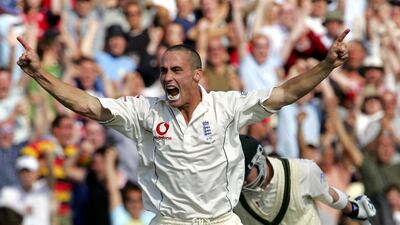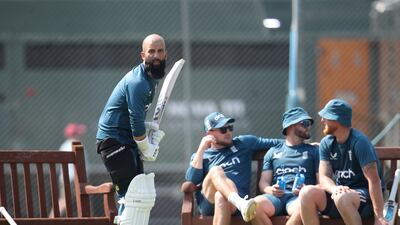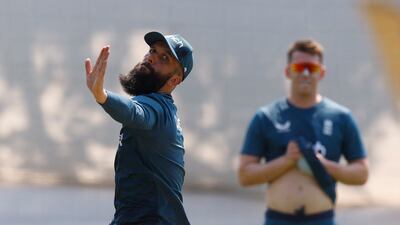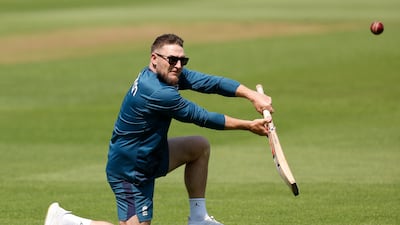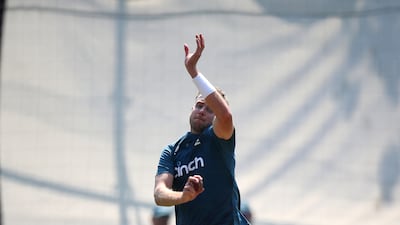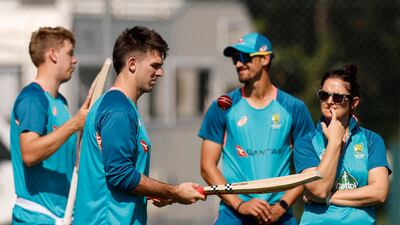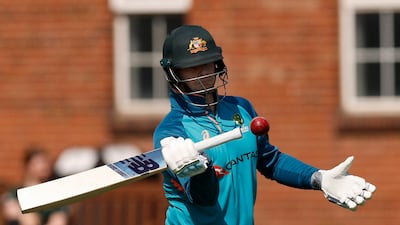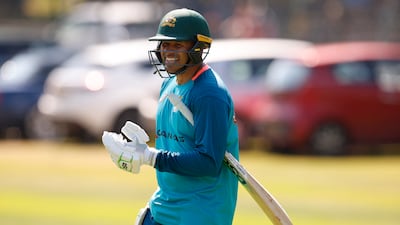“People have gone down different routes in life but as soon as you see each other again there’s just that smile, that’s all you have to do,” says Simon Jones, the former England fast bowler. “You know what it was like. You were part of a special team which did something extraordinary. And it will be with you until the day you die.”
Sitting back in his seat in a booth at a hotel in Cardiff, Jones is speaking about the Ashes of 2005 and his memories of a series which defined him in more ways than one. It is widely acknowledged as one of the greatest ever, in which fortunes ebbed and flowed, where the drama and tension were unceasing and individual heroics abounded. England came from behind to secure a scarcely conceivable 2-1 series win against what was recognised as one of the great Australia teams.
It was a highly charged period between July and September which had the country fixated. The series dominated the front and back pages of newspapers and radio and television bulletins. Besides the heroics of the likes of Andrew ‘Freddie’ Flintoff and Kevin Pietersen, Jones’s vital contribution is sometimes overlooked.
For Jones, who thought that Australia initially lacked respect for and underestimated England, it was a bittersweet experience. Proving a master of reverse swing bowling, Jones took 18 wickets – including a series best 6-53 at Old Trafford - before injury floored him during the fourth Test. That proved to be his final England appearance.
With the latest iteration of international cricket’s deepest rivalry starting on Friday at Edgbaston, an intimidating arena for any visiting team as Jones remembers, his sense of anticipation is evident.
“The series in 2005 has a special place for me. As a sports person you want to test yourself against the best to see how good you are. I felt that I had missed out on a massive opportunity in 2002 when I tore my cruciate. When the opportunity came round again I was so excited.
“We were in a good place because we had beaten New Zealand, West Indies South Africa and Bangladesh. The team was balanced, it was a special environment, almost like a family.”
He was part of a four-pronged pace attack alongside Flintoff, Mathew Hoggard and Steve Harmison. Ashley Giles provided the spin option. Ranged against them were the likes of Glenn McGrath, who to his eventual chagrin had predicted a 5-0 Aussie whitewash, Brett Lee, Jason Gillespie, Michael Kasprowicz and Shane Warne.
“The good thing about our attack was that we could all contribute at different times. We all had different capabilities, could all bowl at different times of the day. Vaughany [Michael Vaughan, the captain], was licking his lips knowing he had a bowler for every eventuality. It was a great attack to be part of.”
When Australia comfortably won the first Test at Lord’s, many feared the worst. There followed at Edgbaston one of the most gripping Tests of all time. At stumps on Day 3 Australia, chasing 282, were 175-8.
The outcome seemed a formality. “We thought, ‘Great, get a couple of wickets in the morning and then we can go straight on the party,’ “Jones recalls.
If only.
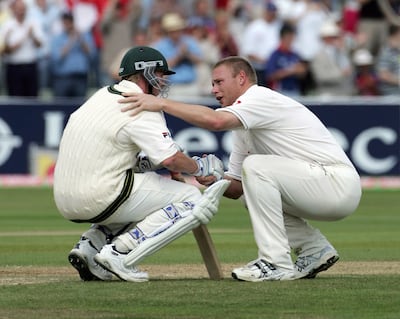
“They showed what they can do and whittled it down slowly but surely. I dropped a catch on the boundary with 15 needed. I just lost it in the crowd. But we escaped by two runs. That levelled the series. If we had gone 2-0 down the series would have been over. Their tails would have been up.
“I was watching it back the other day. It stirred all the old emotions. There was a special bond in that side, the best I have ever been involved in.”
Old Trafford was always a happy hunting ground for Jones. He loved bowling there on the fast track. He took six wickets in the first innings, among them the notable scalps of Ricky Ponting and Adam Gilchrist. In the second he got Michael Clarke with what he stills says is the best ball he ever bowled.
“I bowled him two overs of reverse away swing. I wanted to get him comfortable. He was taking a big step forward every ball and shouldering arms. When you get to that level the batsmen are just so good. You have to play games with them. I had a gut feeling, ‘I’ve got to go inswing here.'"
“The ball came out absolutely perfectly. I couldn’t have bowled it any better. I heard him say, ‘Ah no,’ as it hit the stumps. Then as he came past me I said: 'On your way son', although not as polite as that. Someone asked if they could get the noise of his off stump being hit, as a ring tone!”
With that match drawn, the series moved to Trent Bridge where Jones enjoyed another five for haul in the first innings. Then in the second an old injury flared up.
“At Lord’s I remember running in the first Test from the Nursery End, and heard a massive crack in my right ankle. I thought, ‘That don’t feel right.’ I got through the game. By the time we got to Edgbaston it was still sore so I was given a cortisone injection to calm it down. I got through that Test at 75 to 80 per cent. By the time of the third Test the cortisone had kicked in and I felt better.
“I had a local anaesthetic in that Test from a local doctor at the ground. I think he put too much in. When I was running in, I didn’t know where my foot was. It was like when you’re at the dentist and have a local anaesthetic and it all goes numb. I felt like it was someone else’s leg. I didn’t know where my foot was when I was landing and that scared me. I could easily have gone over on it. I turned to Vaughan and said: ‘I can’t carry on. I can’t feel my leg.’ A scan revealed he had bone spurs and one had broken off.
“I was devastated when I went off and that was it the last Test I ever played.”
Apart from Jones’s unfortunate injury, the match was also notable for accusations of cheating aimed at England. They surfaced when Gary Pratt - the substitute fielding for the injured Jones - ran out Ponting at a crucial juncture. In his frustration, Ponting engaged in a heated exchange with Hoggard and Giles, and then with coach Duncan Fletcher as he entered the pavilion.
“Fletcher was looking down on him and Ponting started effing and jeffing. He thought we were cheating by giving bowlers a breather. Seeing him having a go at Fletch, I thought, ‘They’ve gone here. We’ve got them.’ We were in their heads for most of the series with reverse swing. They just didn’t like it.”
Jones watched the final Test at The Oval from the dressing room. A draw ensured a 2-1 series win and triggered days of celebration. These included an open top bus tour through London, and a visit to No 10 Downing Street.
The comparisons with the 2005 squad and that of 2023 doesn’t stop at the respective coaches – Fletcher and Brendon McCullum, both of whom preach swashbuckling expressive cricket. It is also the relationship they have had and have with their captains, Vaughan in 2005 and Ben Stokes now.
Both believe their approach will future proof the appeal of Test cricket against the onslaught of the limited-overs game.
“They are open minded, not regimented,” Jones explains. “It is almost off the cuff stuff. It is so refreshing. Give someone freedom and they will pay you back. That’s so important for players.”
While England wrestle with their bowling line up, one man who would surely have been playing is Jofra Archer. Like Jones before him, the Barbados-born quick bowler has been plagued by a succession of injuries.
“It’s a huge blow that Jofra is not going to be around,” Jones said. “I know how he feels because I went through a lot of injuries. You feel as if you’re making progress and then you get hit by another setback. It hurts because all you want to do is play the game you love. I think he can come back. He has shown the resilience and hunger to come back before. I love watching that bloke bowl."
One man Jones feels sure will be part of the attack is Stokes.
“I am sure he will be. They’ve been holding him back. They are just being sensible with him by keeping him back for the big games. There’s a huge series coming up. He is a fighter, a grafter. He will do anything for that side. He will bowl 15-over spells at times. It might be to his detriment the next day in terms of how he feels, but he doesn’t care. The team comes first.”
Invariably, a brilliant all-rounder has been at the heart of English Ashes success. Think Ian Botham in 1981, Flintoff in 2005 and now Stokes.
“I see a lot of similarities between Stokes and Freddie, in term of their mentality and being utterly selfless,” Jones, who predicts a 2-1 England success, says.
“You need a big character. The amazing thing about Fred was when he walked on to the field he had a presence. He is a big lad, when he had the ball in his hand or his bat, that presence only increased.
“He was a special cricketer. So is Ben. I watched the innings he played at Headingly in 2019 – 135 not out. I watched that innings and I just thought, ‘How have you done that?’ To keep the strike as much as possible to protect Jack Leach was masterful in itself. But then to open up as he did and win the game was utterly incredible.“
With hindsight, would Jones, who now works in insurance, have changed anything?
“People have asked me would I rather have played 80 Tests and not had ’05. The answer is no. I’d have 2005 every day of the week. We beat probably the best side that has ever lived.”
And he smiles at the memory.
